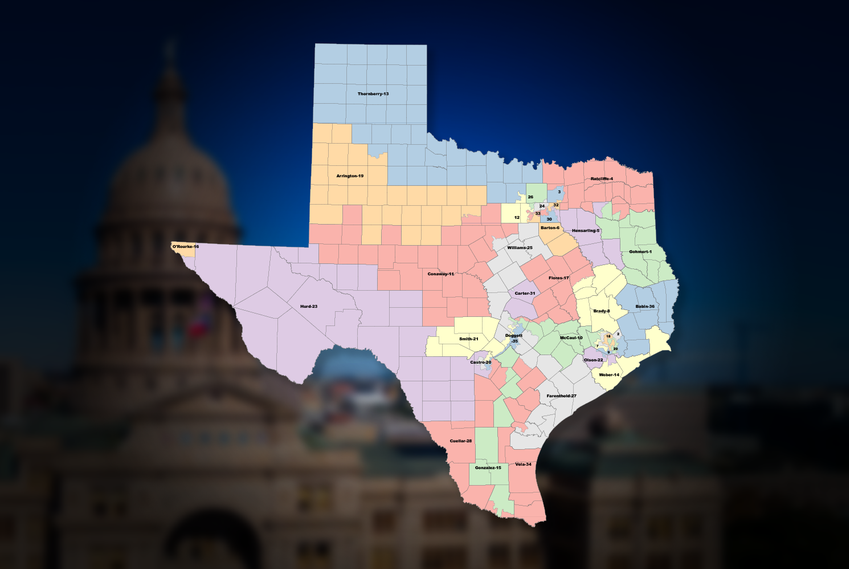
Texas Redistricting: A Recurring Controversy
The political landscape in Texas is on the brink of another upheaval as the redistricting process looms over the state’s future. With significant powers of governance concentrated under Republican control, Texas faces a crucial moment wherein the redrawing of congressional districts can shape elections for years to come. Recent hearings have highlighted not only the contentious nature of these changes but also the perceived flaws in the previous redistricting efforts.
Understanding the Stakes
As per recent statements from Democratic lawmakers during a hearing, the process of redistricting was marred from the outset, as it focused heavily on enhancing Republican control rather than fair representation. The consequences of this skewed process are evident in the challenges faced by communities of color, whose voices and voting power may be diluted in the GOP's quest for dominance. This year's redistricting process is particularly significant as the state gears up for the 2026 midterm elections, following a narrow Republican majority in the U.S. House of Representatives.
Historical Context and Background
Texas has been no stranger to the debates over redistricting, especially since the explosive population growth driven by diverse communities has complicated the traditional partisan calculus. The 2010 redistricting efforts led to aggressive gerrymandering that resulted, by 2018, in significant losses for Texas Republicans—an event that many in the GOP fear could repeat itself if caution is not exercised this time around. Last redrawn in 2021, the current congressional maps are already subject to legal challenges, accused of deliberately disadvantaging Black and Latino voters.
Predictions for the Upcoming Redistricting
Experts are wary of what awaits in the upcoming redistricting. If the Republicans follow through with the current proposals, they risk further alienating the diverse voter base they need to sustain their political reach in Texas. Political analyst Michael Li pointed out that, “The lesson from 2010 is that you can stretch yourself too thin.” He cautioned that if Republicans aim to add new seats without truly assessing demographic shifts, they might face a backlash come the next election cycle.
The Impact on Local Communities
The stakes extend beyond party control; the implications for local communities, especially groups that are historically underrepresented, are significant. The aggressive redistricting efforts could undermine decades of progress in creating equitable voting opportunities for communities of color, who are driving the state’s demographic changes. This has raised alarms among advocacy groups that worry about the long-term consequences on civic engagement and voter representation.
Counterarguments and Diverse Perspectives
While Democrats stand firmly against GOP redistricting maneuvers, some within the Republican ranks express trepidation about the proposed changes. Figures like State Rep. Drew Darby caution that drawing new districts might jeopardize existing Republican seats, indicating that not every member is aligned with the aggressive gerrymandering approach. “We did it according to the law, and I think we need to live with it and the effects until we have the next census,” Darby remarked.
Common Misconceptions and Myths about Redistricting
A pervasive myth involves the efficacy of redistricting as a straightforward solution for electoral dominance. Analysts underscore that the process is inherently complex, often backfiring when political groups push too hard to manipulate district boundaries. The cautionary tales from previous redistricting cycles serve as sober reminders that attempts to outsmart demographic shifts can lead to unwanted electoral outcomes.
Actionable Insights and Potential Outcomes
The redistricting process serves as a critical juncture for Texas politics. Citizens and advocacy groups should remain engaged, keeping a close eye on the developments while demanding transparency and fairness in the redistricting process. Mobilizing community voices can help challenge unjust redistricting efforts and advocate for more accurate and equitable representations within Texas's political framework.
As campaign season heats up and with the 2026 elections looming, understanding how redistricting will redefine political boundaries can empower voters to make informed decisions. Engaging with this process is essential not only for holding power accountable but for ensuring that democracy functions fairly for all Texans.
 Add Element
Add Element  Add Row
Add Row 



Write A Comment